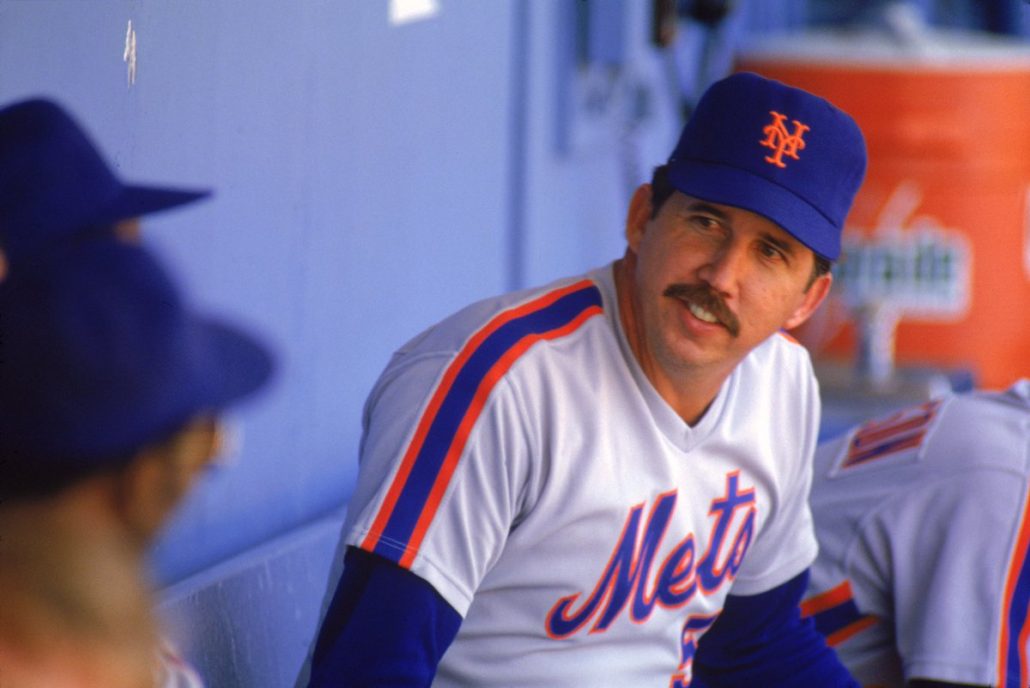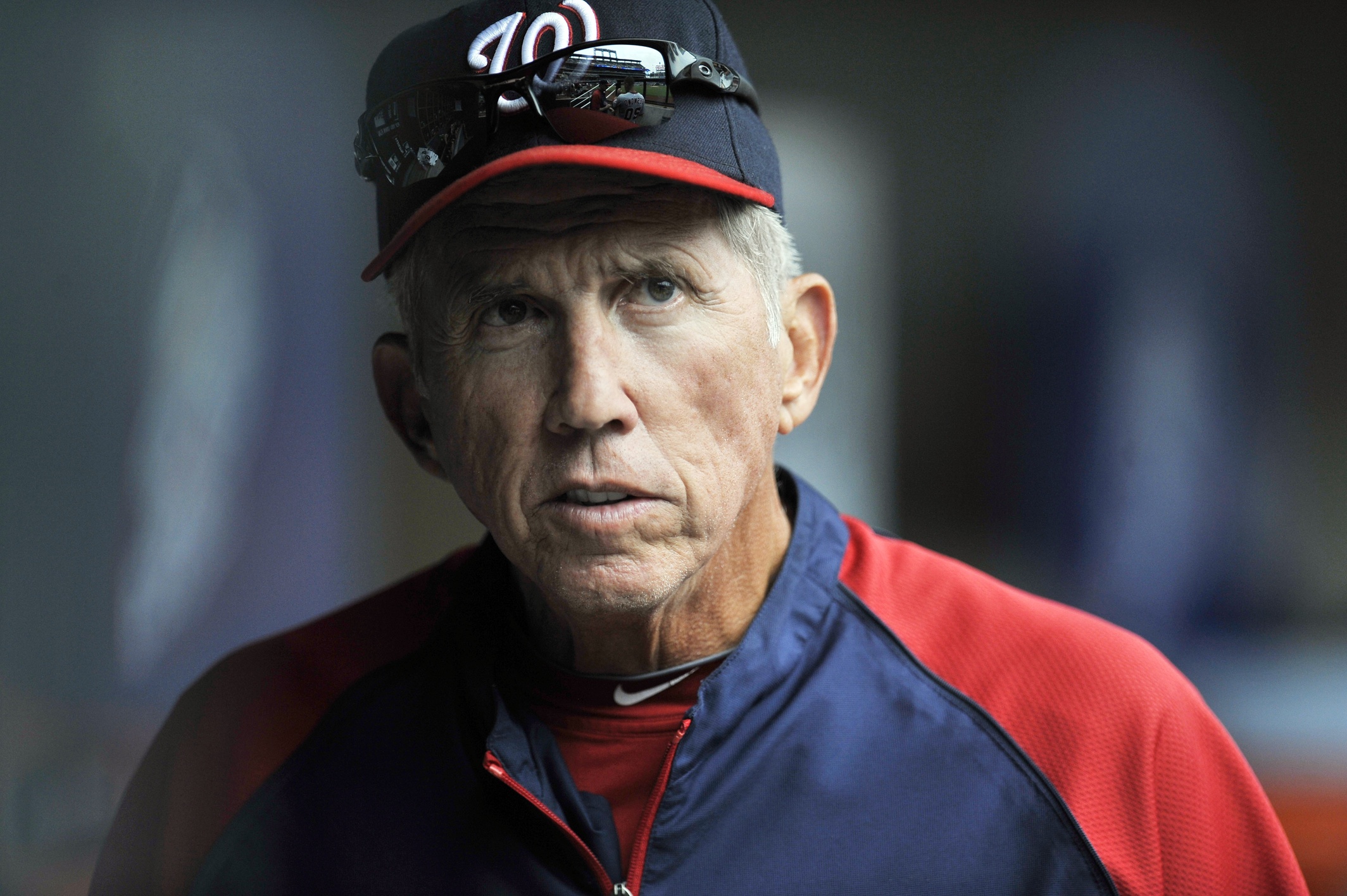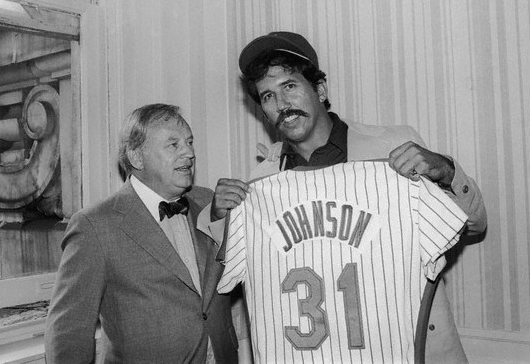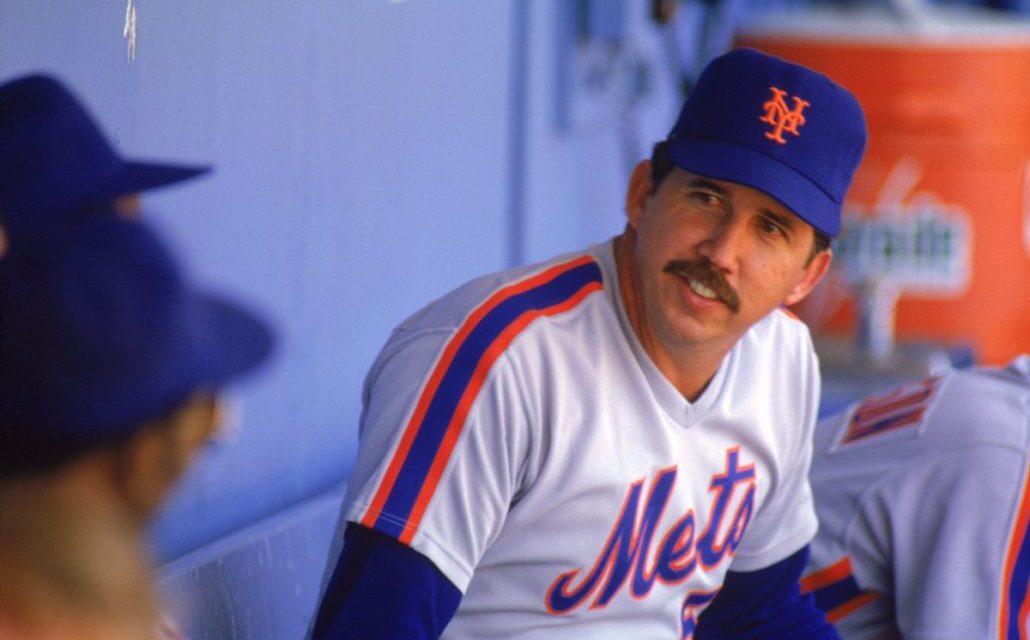There are 11 players or managers eligible for induction into the Hall of Fame with the Mets on some portion of their resume. As the Contemporary Baseball Era Committee results await and eight former managers, executives, and umpires on the ballot, here’s how it stacks up for the leader of the franchise’s last championship.
The confidence Davey Johnson exuded as a manager for 17 seasons surfaced when he spoke at his introductory press conference soon after being hired by New York Mets’ general manager Frank Cashen for his first big-league gig.
“I would like to thank Frank for being smart enough to hire me,” he said.
There was action behind those words. Johnson was about to embark on the best stretch of a successful managerial career that spanned 30 years. In his first season, the Mets went from last place to 90 wins. In his second season, the Mets won 98 times. In his third year, the Mets won it all.
Davey remains the winningest manager in team history at 595 wins with a .588 winning percentage, five years of at least 90 victories, and never finishing below second place. The franchise hasn’t had as good a manager since. He was inducted into the Mets Hall of Fame in 2010, but does he merit a more distinguished recognition?

Davey Johnson.
His bravado established the personality of the ’86 club. While this was a plus in many ways, it was a detriment both in New York and during his later stops in Cincinnati, Baltimore, and Los Angeles (specifically when it came to relationships with general managers and owners).
There are managers with fewer wins who have more rings and managers with more wins and no rings. You could say Johnson should have won more titles with the talent he had, yet you could also say he lucked out with the one he got.
When examining the larger sample, results show that Johnson’s presence yielded winning teams in the many places he went.
The Case for
Johnson’s perennial success with the Mets made him the first manager to attain 90 or more victories in each of his first five seasons. The 1986 title is his certainly signature accomplishment, but he had a knack for turning clubs into postseason members.
He became the Reds’ skipper 44 games into the 1993 campaign. They were a first-place club when the 1994 strike came and were NL Central champs in 1995. The Atlanta Braves dynasty prevented him from reaching the World Series.
A fallout with Cincinnati owner Marge Schott opened up an opportunity to move to Baltimore, where he was a part of the Orioles’ glory years as a player. The year before Davey arrived, the Orioles were 71-73. The year Davey arrived, the Orioles went to the American League Championship Series.
Johnson took a 10-year break from the bench, serving as an advisor to the Washington Nationals in the interim, before being asked to take over the reins in D.C.—a franchise that hadn’t seen a winning season for more than a decade.

Davey Johnson.
His first full season guiding the Nats resulted in an NL East crown, the best record in the majors, and signs of early development from teenage rookie Bryce Harper. It was also Johnson’s second Manager of the Year Award, becoming one of a few to earn the honor in both leagues.
He retired for good a year later, finishing 301 games over .500 as a manager, and is 10th all-time in winning percentage among those winning at least 1,000 games. The nine managers above him on the list are all in Cooperstown.
Many of Johnson’s decisions were based on statistical analysis, a practice that in the 1980s seemed unnecessary but lately has become an organizational requirement. His computer-generated, forward-thinking approach to the game is an added bonus, as is his career as a player—highlighted by four All-Star selections and three Gold Glove Awards. Johnson spent eight years in Baltimore, where he was a part of teams that won four pennants and two World Championships. In 1973 as an Atlanta Brave, he was lineup protection for Hank Aaron and set a then-record for home runs by a second baseman with 43.
The Case Against
Perhaps the biggest deterrent to Johnson’s chances is his relative lack of games managed, primarily the result of that hiatus from 2001 into 2011. Compared to the 22 managers currently in the Hall of Fame, Johnson has more career wins than only four of them.
His sub-.500 postseason record is a sign that his teams underachieved in October. The ’88 Mets were heavy favorites to reach the World Series and didn’t. The 1997 Orioles had the most wins and didn’t make it past the AL playoffs. The 2012 Nationals couldn’t advance past the Division Series. In fairness, he managed the Mets without an expanded postseason. And as we’ve seen from recent history and the Wild Card era, the best teams don’t always prevail. But there are 14 Hall of Fame managers who have better postseason winning percentages.
This is the fifth Johnson’s fifth time on a version of the Veterans Committee ballot and he hasn’t been close yet. On his most recent attempt, fellow ballot-mate Lou Piniella got 11 votes out of 16 while Davey got “less than five” (the results didn’t specify).
Davey also never established himself with one team. Arguably he’s known for his time with the Mets (plus that was his longest), but he never settled anywhere longer than the six-plus seasons in New York. The closest comparison that’s in the Hall is Dick Williams, who stayed less than five seasons with six teams. The difference is that Williams managed in four World Series and won twice.

Davey Johnson.
Final Thoughts
If past voting history is any indication, Davey Johnson faces an uphill battle to get the 75 percent of votes needed especially when faced with the rest of the names on the ballot. If there’s a consideration for the quality of the teams he led rather than the quantity of games he managed on top of a solid playing career, it’s a resume that merits induction one day—perhaps even next summer.
















